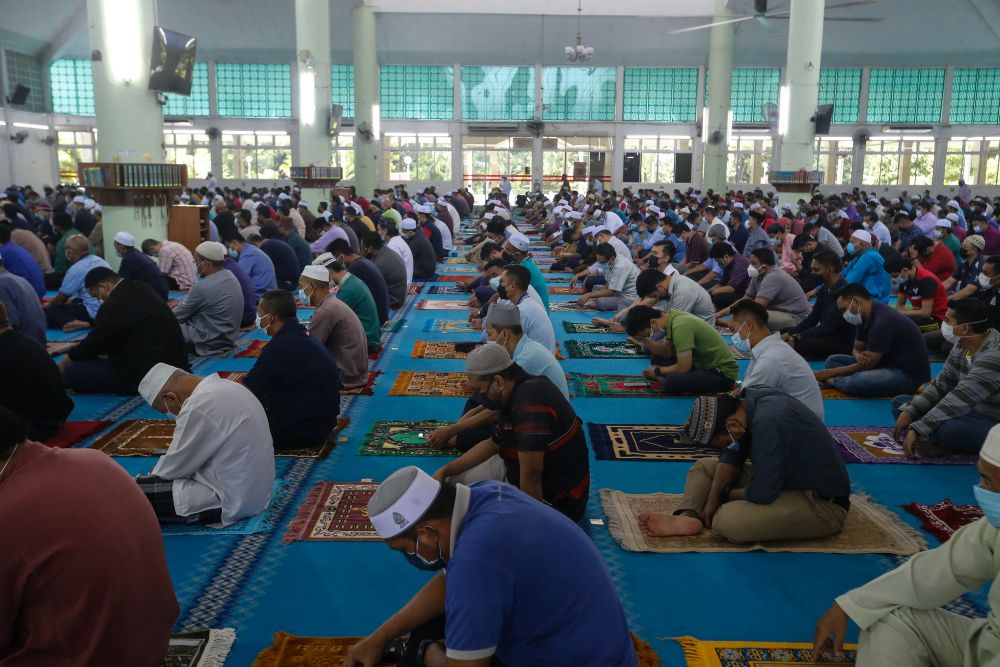Muslims attend Friday prayers at the Seberang Jaya Mosque in Butterworth September 24, 2021. — Picture by Sayuti Zainudin
KOTA BARU, Feb 6 — The current standard operating procedures (SOP) for congregational prayers in mosques, surau and madrasah have proven to be effective in curbing the spread of Covid-19, says Deputy Minister in the Prime Minister’s Department (Religious Affairs) Datuk Ahmad Marzuk Shaary.
He said this could be seen by the fact that no mosque-related clusters have been reported so far, and therefore, the existing SOP would also be used for the special tarawih prayers during the month of Ramadan.
“That is why we have maintained the SOP until today, and if there is a change in the next two months before Ramadan, it will be announced by the government. If any (changes are announced), it is up to the views of the respective state religious councils to use the SOP effectively.
“We have also learned from several incidents that occurred last Ramadan when there were clusters of tarawih groups that did not comply with the SOP. Therefore, the government and the authorities will intensify monitoring so that congregants comply with the SOP set,” he said.
He was speaking to reporters after attending the Food Bank Contribution presentation ceremony by Yayasan Pembangunan Ekonomi Islam Malaysia (YaPEIM) at Kolej Uniti here today, which was also attended by Kota Baru Kolej Uniti chief operating officer Mohd Shaharom Azmin and Kelantan YaPEIM Administrative Centre general manager Nik Mohd Nurul Ihsan Salleh.
The media previously reported that the Malaysian Islamic Development Department (Jakim) did not intend to introduce specific SOP for tarawih prayers during Ramadan this year, and would instead maintain the existing ones in use.
Meanwhile, commenting on a recent ‘trend’ of couples getting divorced through the WhatsApp application, Ahmad Marzuk said the divorce was legal, but it was not ethical in nature.
“Based on the (Syarie) law, a divorce through WhatsApp is legal, but it is not good in terms of morals. From a moral point of view, a husband should not simply divorce his wife arbitrarily in such a manner, Islam teaches us to stay together on good terms, and if we want to let go (of the spouse), we should do it amicably.
“In fact, in order to safeguard the welfare of both parties, they must follow the divorce procedure through the court to obtain an official divorce certificate,” he said. — Bernama

